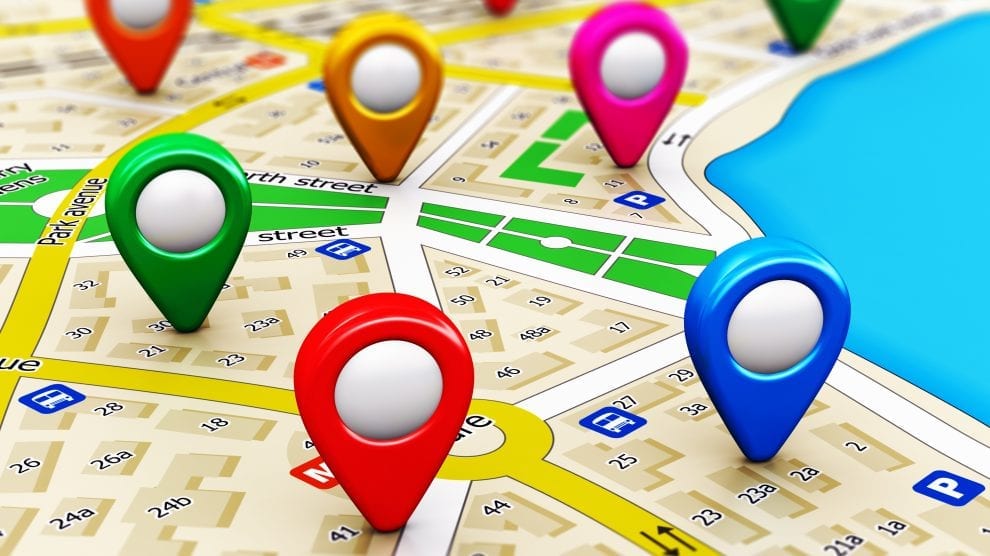For years, GPS navigation has been a trusty companion, guiding us through unfamiliar streets and across vast landscapes. But the familiar “beep-beep” and on-screen directions are about to get a serious upgrade, thanks to the rapidly evolving field of artificial intelligence. AI is no longer just a futuristic concept; it’s quietly revolutionizing the way we navigate, making our journeys smoother, safer, and more efficient than ever before.
Beyond the Map: AI’s Enhanced Navigation Capabilities

Traditional GPS systems rely on static map data and pre-programmed routes. While functional, they often fall short when confronted with real-world complexities like unexpected traffic jams, road closures, or accidents. This is where AI steps in, providing a dynamic and intelligent layer to the navigation experience. AI algorithms can analyze vast amounts of real-time data – from traffic flow patterns and weather conditions to social media posts reporting incidents – to offer more accurate and adaptive routing suggestions.
Imagine this: you’re driving to an important meeting, and suddenly a major accident shuts down the highway. A traditional GPS would likely stick to its original route, leading to significant delays. An AI-powered system, however, would instantly identify the problem, reroute you through less congested roads, and even provide estimated arrival time adjustments based on the dynamic traffic situation. This predictive capability is a game-changer for commuters and travelers alike.
Predictive Analytics: Anticipating Your Needs
AI’s predictive capabilities extend beyond simple rerouting. Advanced systems can learn your driving habits and preferences over time, anticipating your needs before you even ask. For instance, an AI-powered navigation app might learn that you typically stop for coffee on your way to work and proactively suggest nearby cafes, taking into account both your current location and the traffic situation. It might also adjust its route based on your preferred mode of transport, considering factors like speed limits, toll costs, and the availability of parking spaces.
Improved Safety Features: Proactive Accident Avoidance
Safety is paramount, and AI is making significant strides in enhancing road safety. AI-powered systems can process data from various sensors (including those found in modern smartphones) to detect potential hazards, such as pedestrians stepping into the road or vehicles making sudden lane changes. By analyzing this information in real-time, these systems can provide timely warnings, helping drivers avoid potentially dangerous situations. Some systems even integrate with emergency services, automatically contacting them in the event of an accident.
Personalized Experiences: Tailored Navigation for Everyone

The beauty of AI lies in its ability to personalize the user experience. AI-powered navigation systems can learn your individual preferences and adapt their suggestions accordingly. Do you prefer faster routes, even if it means paying a toll? Or would you rather take a scenic route, even if it takes a little longer? AI can cater to these preferences, creating a navigation experience that’s uniquely tailored to your needs and desires.
The Future of AI in GPS Navigation

The integration of AI in GPS navigation is still in its early stages, but the potential is immense. We can expect to see even more sophisticated features in the years to come, including:
- Augmented Reality Navigation: Overlaying real-time navigational information directly onto the driver’s view of the road, reducing the need to constantly look down at a screen.
- Autonomous Vehicle Integration: Seamless integration with self-driving cars, providing the vehicle with advanced navigational capabilities.
- Improved Traffic Prediction: Even more accurate and precise prediction of traffic patterns, reducing congestion and improving overall travel time.
- Hyperlocal Data Integration: Using hyperlocal data sources, such as social media and crowd-sourced information, to provide even more accurate and up-to-date information about road conditions.
Choosing the Right AI-Powered Navigation System

With the increasing number of AI-powered navigation systems on the market, it’s important to choose one that meets your individual needs. Consider factors such as the accuracy of its real-time traffic data, the quality of its map data, the availability of offline maps, and the ease of use of the interface. Read reviews from other users and compare the features of different systems before making a decision.
The integration of AI into GPS navigation is transforming the way we travel. It’s no longer just about getting from point A to point B; it’s about getting there safely, efficiently, and with a personalized experience tailored to your needs. As AI continues to evolve, we can expect even more innovative features and functionalities to emerge, making our journeys even smoother and more enjoyable.








